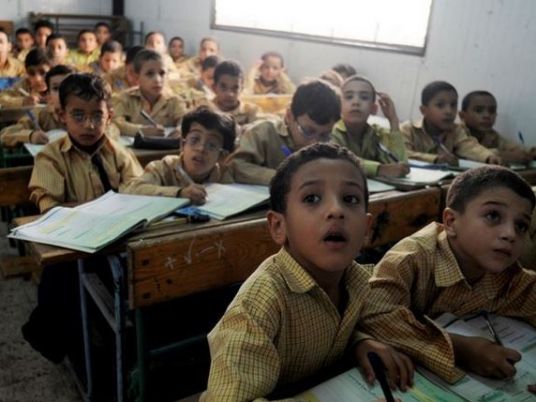
In a hall named after Taha Hussein, with shelves lined with books by the Dean of Arabic Literature and Abbas Al-Aqqad, including titles like ‘Jews of Egypt’, the Minister of Education, Mohamed Abdel-Latif, addressed the editors-in-chief about his aspirations for the ministry.
He mentioned that their meeting had been postponed so he could discuss what he had already done rather than what he intended to do.
The minister emphasized his desire to be different and to take action, even while adhering to the 2030 education strategy.
He expressed his intention to continue the work started by his predecessor Tarek Shawki, but utilizing different methods. The minister shared numerous details, including reducing class sizes and addressing the significant teacher shortage.
A large part of our education system’s problems can be attributed to the English system imposed by colonization in the second half of the 19th century.
However, a true assessment of the education system’s state should focus on post-occupation periods and the outcomes of subsequent decades. While the English may have initiated some of these problems, the real responsibility lies with those in charge of education over the decades.
A comparison between the results before the 1950s and after would reveal the obvious.
Although the minister partially blames the English system, it cannot be denied that this system is prevalent, including in schools that were previously headed by the minister himself before assuming his current position.
Returning to the late 19th century, during the early years of British occupation of Egypt, Douglas Dunlop emerged as a key figure in Britain’s endeavor to influence educational policies and challenge the prevailing French influence.
This debate, with Egyptian nationalism at its heart, persisted throughout Britain’s occupation – fueled by the rising tide of nationalism that had been building since the very beginning of colonial rule.
What can be inferred from the minister’s statement is that there is a new trend that contradicts what has happened in recent years.
We can describe this as an ‘eastward turn’ after a prevailing ‘westward turn’ that was fraught with the ills of imitation and appropriation, without building our own experience or even preserving our identity amid a random trend that brought us more cultural erosion because we relinquished the oxygen of progress – identity and genuine education.
The minister expressed his dream of having 100 Japanese schools, not just a few, and did not hide his admiration for what they offer in their system, and their output.
I believe he found in this an opportunity to realize something amidst the sea of criticism he has been drowning in since his appointment.
The minister’s examples, which included several Eastern countries like China and Japan, highlight a growing recognition of the value of Eastern educational models.
However, Finland, a Western nation, was also singled out for its achievements.
While the proposed reforms, such as reducing the number of high school subjects, may seem promising on paper, the true success of these changes will depend on the quality of the curriculum.
Simply reducing the number of subjects is not enough; the content must be meaningful and engaging, fostering critical thinking and personal growth.
It is apparent that Egypt’s education system needs a radical overhaul.
While learning from other countries is beneficial, it is essential to adapt these practices to the unique needs and circumstances of the nation.




